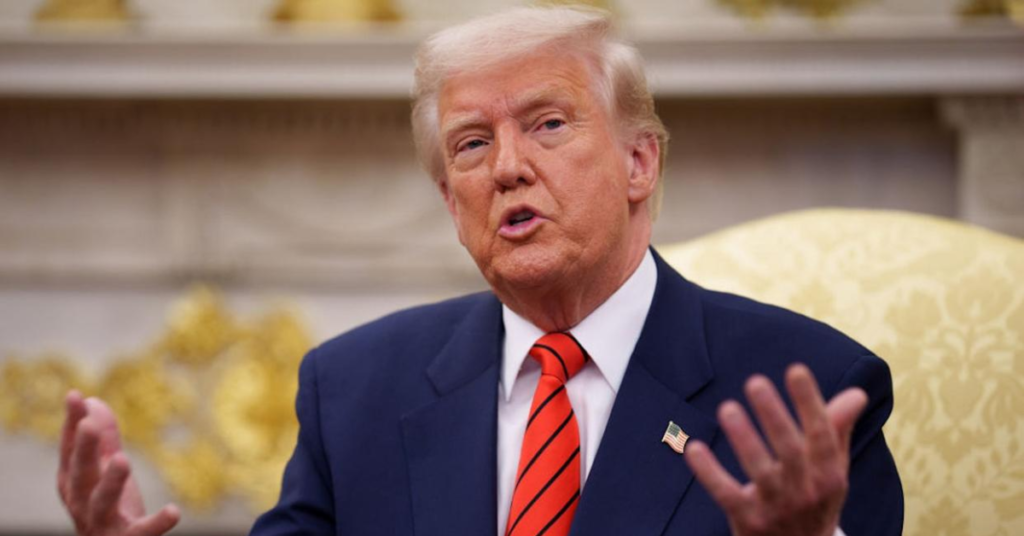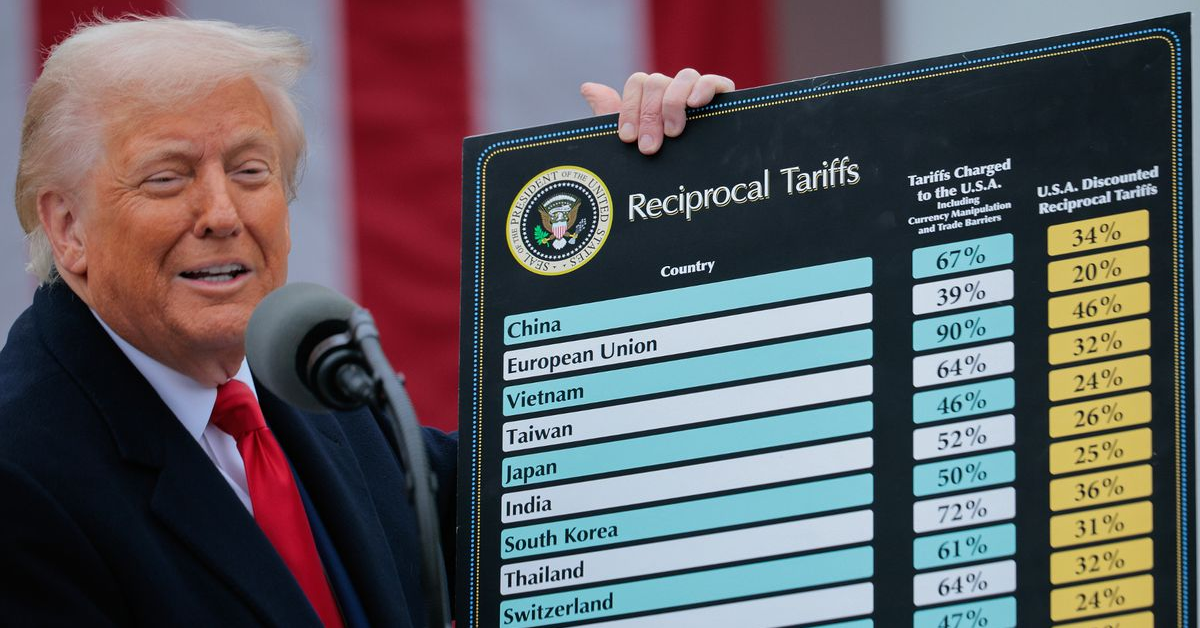Donald Trump made an unexpected confession that has left many questioning the future of U.S. manufacturing. In a recent interview, he discussed how long he believed it would take for the industry to recover and grow after the tariffs he imposed on most countries worldwide.
The former president’s response was blunt and confident, but many critics are now skeptical about the feasibility of his prediction. According to Trump, it would take “two years” for American manufacturing to be where he envisions it.
When asked by a reporter how long it would take to rebuild American manufacturing, Trump answered, “Well, let’s say it’s a two-year process.” He went on to explain that rebuilding the industry would involve constructing large plants, which would also incorporate electric generation facilities.
“We’re giving them approval to also, in many cases, to build the electric facility with it,” Trump said. He further elaborated that while these plants could be built fairly quickly, they would still be substantial in size, requiring a significant amount of time to complete. “So, you have electric generation and the plant, and they’re big plants,” he stated.
Despite Trump’s confidence in his vision for U.S. manufacturing, many people took to social media to criticize his statement. Some users voiced their concerns about the accuracy of his prediction, with one person sharply commenting, “Trump is f—— clueless.” Another user seemed to dismiss Trump’s thoughts entirely, saying, “The good ol’ days of manufacturing are gone.”
Manufacturing is highly automated with robots and AI. It will not bring back the level of jobs that it did in the 80s. Trump is living in the past.” This critique pointed to the reality that modern manufacturing involves automation, making it much different from the large-scale, labor-intensive factories of past decades.
One comment on social media even suggested that Trump’s lack of understanding about the current state of manufacturing could have serious political consequences. “He has no f—— idea. Dems are so winning the midterms,” the person wrote, highlighting the possibility that Trump’s missteps could harm the Republican Party in the upcoming elections. Another social media user quipped, “Two years? Perfect time for his next impeachment. And this time, he’ll be convicted,” alluding to Trump’s controversial history with impeachment.
Trump’s presidency was marked by two impeachment trials. The first impeachment occurred in 2019 for abuse of power and obstruction of justice, while the second came in early 2021 after the January 6 Capitol riot, where he was charged with inciting an insurrection.
Although Trump was impeached twice, neither impeachment led to a conviction, and he continued to play a significant role in American politics. Many of his actions, including the imposition of tariffs, sparked sharp debates and polarized opinions across the country.
This recent remark about U.S. manufacturing comes shortly after Trump announced his tariffs, which he referred to as “Liberation Day.” On Wednesday, these tariffs went into effect, placing high import taxes on goods coming from most countries around the world. Trump’s goal with these tariffs is to boost the U.S. economy by increasing domestic manufacturing, which he believes will create jobs and bring billions of dollars into the country.
According to Trump, the tariffs are expected to generate anywhere from $6 to $7 trillion in revenue. The idea is that the construction of new manufacturing plants will lead to job growth and economic stimulation.

However, the immediate impact of the tariffs has been felt in the stock market, with the Dow Jones Industrial Average dropping by more than 1,600 points on Thursday. This dramatic decline highlights the uncertainty surrounding the effectiveness of Trump’s tariff strategy. Critics argue that the economic fallout from the tariffs might outweigh the potential benefits, particularly if the predicted job growth and manufacturing boom don’t materialize as expected.
The tariffs themselves have sparked controversy, with opponents arguing that they could have far-reaching negative consequences for both the global economy and the U.S. market. While Trump believes that the tariffs will strengthen American manufacturing, critics worry about the long-term effects of such policies, especially in an era where automation and artificial intelligence play a major role in the manufacturing process. Many experts believe that the widespread use of robots and AI has fundamentally changed the landscape of global production, and that the days of mass labor-intensive factories may be behind us.
Furthermore, rebuilding U.S. manufacturing to its former glory may be difficult, given the shift in how products are made today. Automation and advanced technology have drastically reduced the need for human workers in manufacturing plants, which means that the number of jobs created by new factories may not be as high as Trump hopes. Some critics point out that the goal of bringing back millions of manufacturing jobs is unrealistic, given how much the industry has evolved in recent years.
Despite these concerns, Trump remains optimistic. He insists that the combination of tariffs and new manufacturing plants will ultimately create a more prosperous future for the U.S. economy. He believes that the next two years will see substantial progress, even if the path to recovery is not as straightforward as he envisions. Whether or not Trump’s vision for U.S. manufacturing comes to fruition is yet to be seen, but it’s clear that his statement has stirred strong reactions from both supporters and detractors alike.
In the coming months, it will be interesting to see how the effects of the tariffs play out, both in terms of the economy and in the political landscape. While Trump’s policies have always sparked controversy, his recent comments about the future of manufacturing have raised serious questions about his understanding of the industry’s current state.
Disclaimer: This article has been meticulously fact-checked by our team to ensure accuracy and uphold transparency. We strive to deliver trustworthy and dependable content to our readers.








